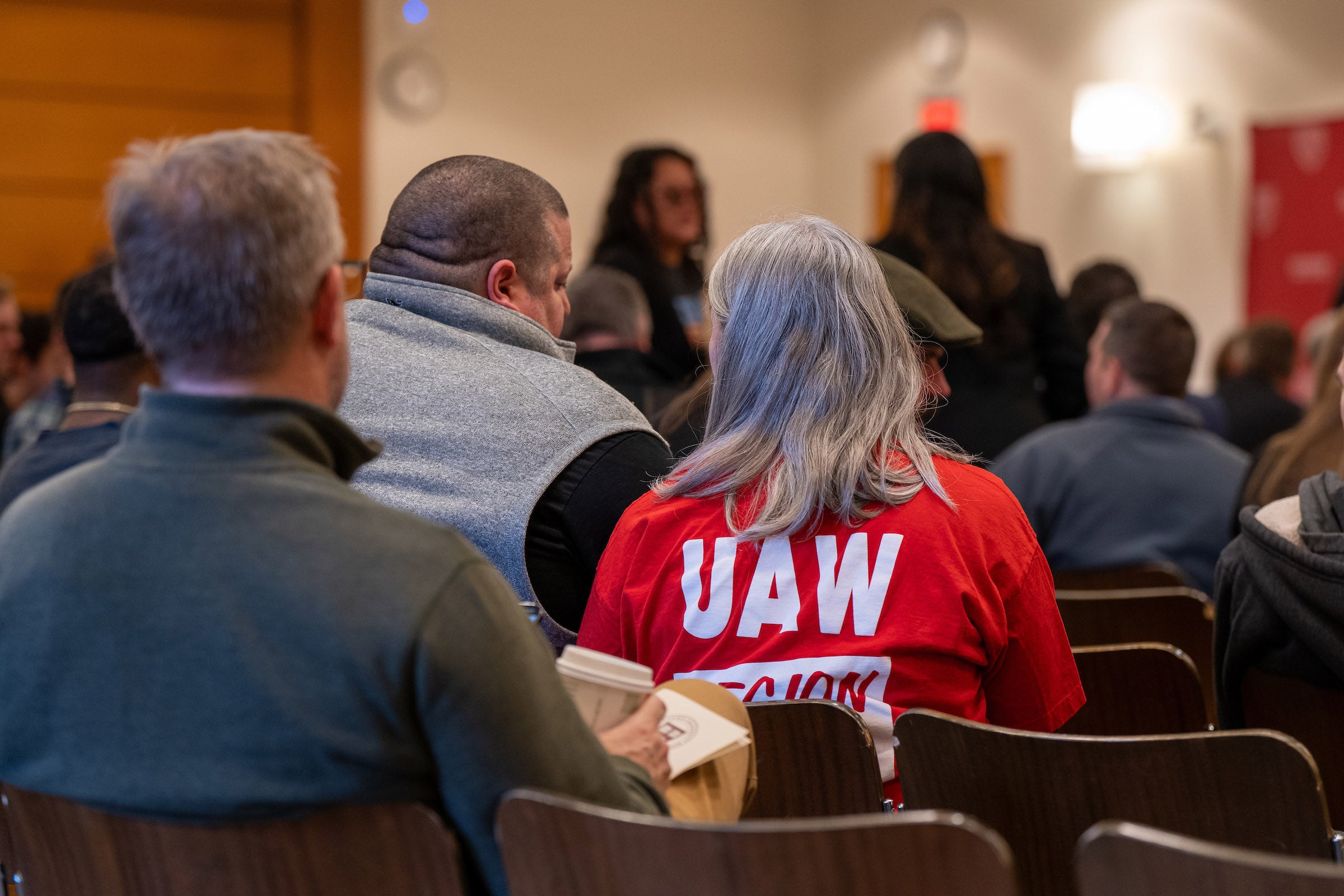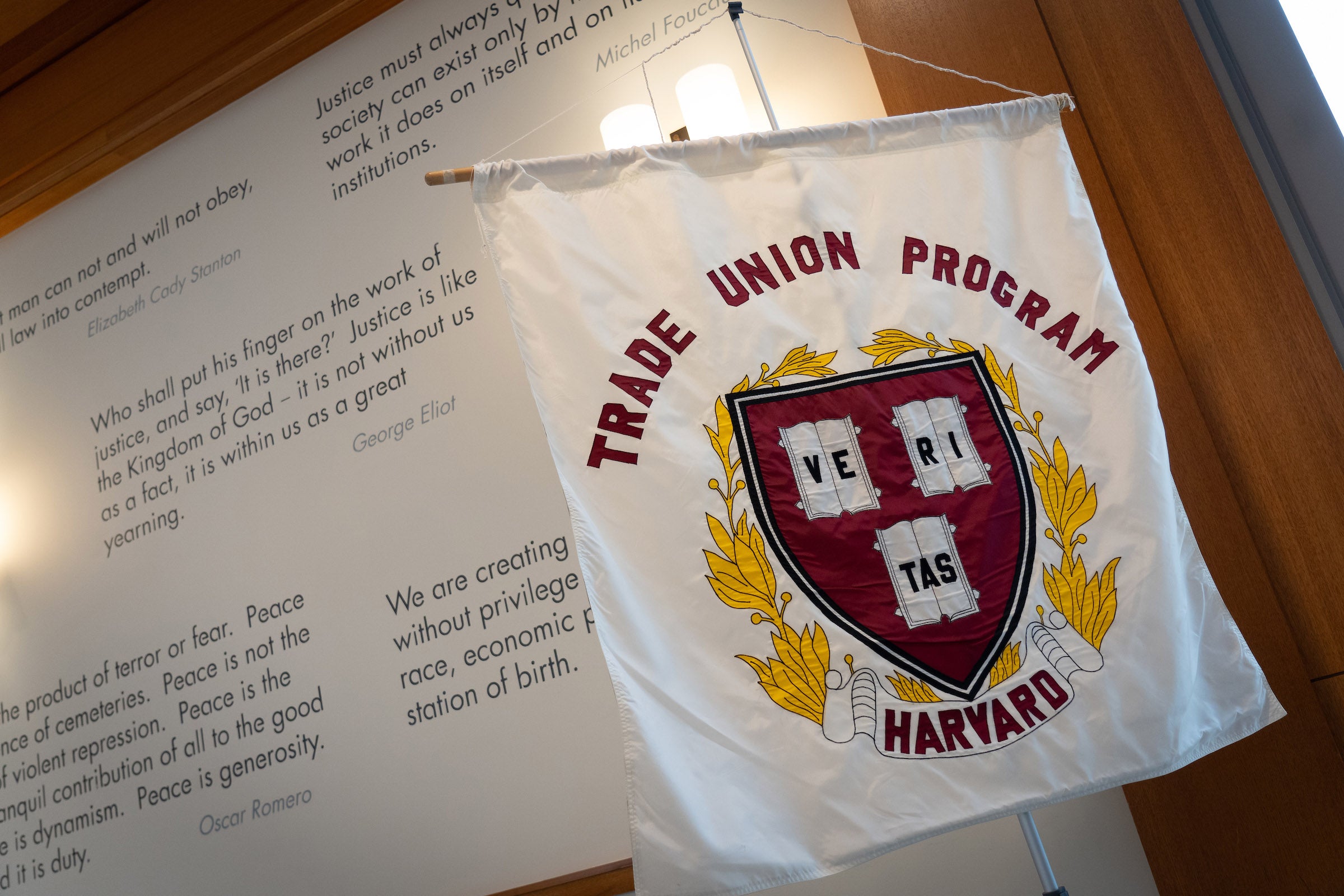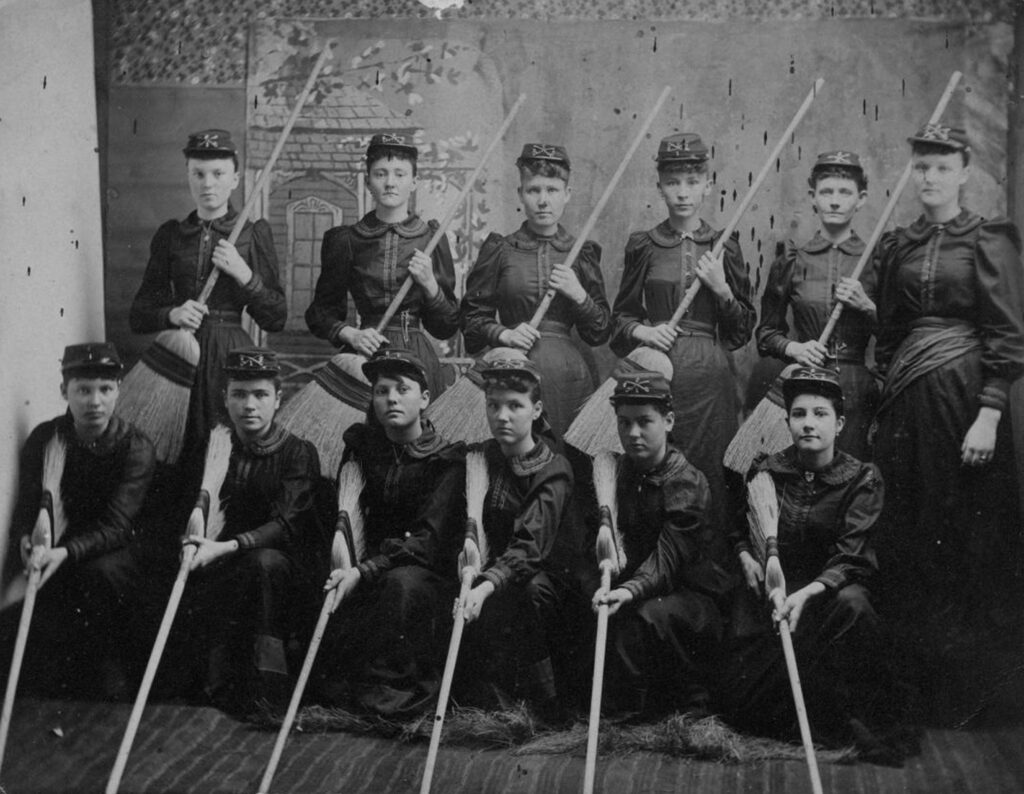The future of this experiment is on the line as much of its civilian infrastructure has been destroyed since October.
Alongside all the heartbreaking tragedies in the Middle East, a radical alternative is under threat in the region. In northeast Syria, not long ago the scene of this century’s most horrible bloodshed, millions of people of different ethnicities are building a stateless, post-capitalist, post-domination society.
Since October 2023, the Turkish military has bombed Rojava’s villages, cities and civil infrastructure on a daily basis — supported by arms supplies from the United States and other Western countries. Around 80 percent of electricity and water stations have been destroyed, leaving millions of people without heating, energy and sufficient water supplies. And while Turkish President Recep Tayyip Erdoğan condemns the Israeli genocide against Palestinians, he’s hypocritically taking advantage of the world’s attention on Gaza to hide his own.
The reason for the relentless airstrikes since October 2023 isn’t “terrorism,” as Erdoğan repeatedly claims. Rojava poses a core threat to any existing government, especially those with imperialist ambitions, by showing the world a viable model of peaceful multiethnic coexistence, grounded in lived political, cultural and ecological autonomy.
Guided by one of the most democratic constitutions in the world (first adopted in 2014 and updated in December 2023), the people of Rojava have established a system of decentralized self-governance based on grassroots decision-making in popular assemblies since 2012. Decisions are made as much as possible by the those who are concerned and affected by them, and bureaucracy is used only when people can’t make decisions at the community level.
The war on Rojava relies on a near-total media blackout, the (at least tacit) support of NATO, Russia and Iran, and weapons deliveries by the U.S., Germany, U.K., Spain, and other countries. The U.S. in particular plays a Machiavellian double game: On one hand, it protects Rojava through its military presence; on the other hand, it uses its military cooperation with the Syrian Democratic Forces (SDF), made up of self-organized self-defense units (the female YPJ and male YPG), to weaken the democratic grassroots structures while simultaneously providing Turkey with the very weapons to crack down on Rojava. On January 26, the Biden
administration approved its latest sale of F-16 fighter jets worth $23 billion to Turkey.
What is more, the longer Israel’s assault on Gaza continues, the likelier the danger of a regional spillover that Rojava’s adversaries are keen to use against them. One of the motives driving the intensifying hostilities between the U.S. Army and Iranian allies is the Iranian regime’s interest in crushing or at least containing the Kurdish liberation movement.
Apart from some prominent solidarities — including former senior British diplomat Carne Ross, dubbed the “accidental anarchist” by the BBC, and leftist intellectuals like Noam Chomsky, Silvia Federici and David Harvey — and mentions in The New York Times and The Guardian, Rojava has received little coverage by international media and virtually no political support from any existing government or the United Nations. They were even denied a seat at the negotiating table for the future of Syria, despite controlling a third of its national territory.
The Kurdish Struggle’s Change of Vision
As surprising as its appearance on the world stage may seem, Rojava didn’t emerge out of nowhere — it’s the result of the Kurds’ long and difficult anti-colonial resistance.
The Kurdish people — a population of roughly 40 to 45 million — are the world’s largest ethnic group without its own state.
In the Lausanne Treaty of 1923, when European colonial powers drew the map of a post-Ottoman Middle East, they divided the Kurds among four ethnocentric nation-states. Subsequently, Kurdish people suffered 100 years of genocidal colonial erasure to wipe out their language, culture and political organization, and turn them into Turks of Turkey, Arabs of Syria and Iraq, and Persians of Iran.
But countless and ongoing war crimes with near-total impunity have failed to achieve that goal.
In 1978, Abdullah Öcalan founded the Kurdistan Workers Party (Partiya Karkerên Kurdistan or PKK) in an attempt to liberate the Kurdish people from the systemic violence of colonial oppression and waged a guerrilla war against Turkey, aiming to establish a socialist Kurdish state. Tragically, 40,000 people have died in the armed conflict since 1984, mostly Kurds killed in Turkish counterinsurgency campaigns.
Since his imprisonment by the Turkish secret service with the help of the U.S. in February 1999, exactly 25 years ago today, Öcalan has been serving a life sentence in solitary confinement where he’s been subjected to torture and other cruel and degrading treatments. Since March 2021, he has been denied access to all means of communication and contact with the outside world, including his lawyers and family.
In prison, Öcalan underwent a fundamental change of vision. While Öcalan and the PKK continue to be regarded as “terrorists” in many countries, he has unilaterally declared a ceasefire nine times and served as the lead negotiator in an attempt to resolve Turkey’s Kurdish question at the negotiating table from 2013 and 2015.
Fusing inspiration from thinkers like Murray Bookchin, Andre Gunder Frank, Immanuel Wallerstein and Fernand Braudel with his own lessons of the Kurdish liberation struggle and memories of his people’s matrilineal traditions, he abandoned Marxist-Leninist orthodoxy and outlined a new political vision for Kurdistan: “Democratic confederalism” aims to chart a pathway away from the oppression under “capitalist modernity,” nation-states and patriarchy by establishing decentralized autonomous communities and regions with direct democracy, women’s liberation and social ecology.
“The real power of capitalist modernity isn’t its money and its weapons, [but] its ability to suffocate all utopias […] with its liberalism,” wrote Öcalan.
Liberation Beyond Nation-State and Patriarchy
In July 2012, as Syrian President Bashar al-Assad’s troops faced an armed insurrection in southern and central Syria, a popular Kurdish-led uprising in the Kurdish-majority northeastern part of the country quickly filled the power vacuum and put these ideas into practice. By 2017, the Democratic Autonomous Administration of North and East Syria or, as it’s more commonly known, “Rojava” (Kurmanji for “West” Kurdistan) encompassed 5 million people and made up roughly a third of Syria’s territory.
Albeit a regular misunderstanding, Rojava doesn’t aim for a Kurdish nation-state. To the contrary, it rejects nationalism and is an experiment for how people of different ethnicities and religions can peacefully live together and self-organize beyond the constraints of the nation-state. To foster social cohesion among Kurds, Arabs, Assyrians, Turkmen, Armenians and Ezidis, among Muslims and Christians, Rojava’s system involves mechanisms for the radical inclusion of minorities in the popular assemblies, a community-based system of restorative justice that encourages dialogue, reparations and reconciliation among conflicting groups and needs-based resource sharing among all groups. As communities self-organize, they find less need for enforcement through courts and police. Rojava is a lived example of political anarchism: democracy without a state.
Trying to wean itself off of dependence on oil and imports of food and other basics, the revolution’s economy is powered by thousands of worker-owned cooperatives that have arisen since 2012 and are oriented towards an ecological society. One of their goals is self-sufficiency through regenerative agriculture and renewable energies.
But perhaps its most crucial foundation of “democratic confederalism” is women’s leadership at all levels of society. Beyond structures for political and economic gender equity — such as women-run cooperatives and the agreement that all assemblies are at least co-chaired by women — the Rojava revolution has established social and educational practices for restoring female authority. There are women’s councils at the community level to deal with conflicts and domestic violence, women’s houses and villages for female bodies traumatized by war or domestic violence to heal with each other, and women’s academies and studies (“jineology”) for Rojava’s women to reclaim the intellectual power stolen by patriarchy: their capacity to make sense of history, thought and the world in their own right. That being said, Kurdish feminism isn’t satisfied with equitable access to power and privilege within the existing system; it sets out for a fundamental reorganization of society from the bottom-up.
Recognizing the oppression of women as the oldest form of slavery, Öcalan proclaimed that any liberation of life can only be achieved through a women’s revolution and that this involves restoring the relational ties of communal and ecological existence which have been corroded by hierarchical patriarchal rule. This marks a deep shift in political thinking. As the late David Graeber writes about Öcalan’s insights in the preface to his Manifesto for a Democratic Civilization:
It is almost universally assumed that creating equality or democracy in a small group is relatively easy, but that to operate on a larger scale would create enormous difficulties. It’s becoming clear that this simply isn’t true. Egalitarian cities, even regional confederacies, are historically commonplace. Egalitarian households are not. It’s the small scale, the level of gender relations, household servitude, the kind of relations that contain at once the deepest forms of structural violence and the greatest intimacy, where the most difficult work of creating a free society will have to take place.
As Nilüfer Koç of the Kurdish National Congress emphasizes, the revolution understands that a post-domination society can never be imposed — it can only develop organically to the extent that its members build trust with each other and learn to cooperate, to practice empathy and function within consensus and choice.
That isn’t to say that Rojava is flawless; far from it. It’s as riddled with contradictions as any attempt to turn such ambitious ideals into practice. Challenges include competition between military and grassroots democratic structures, lack of participation in assemblies, pushback from traditional Arab sheikhs against feminist policies, material shortages and reliance on oil revenues. The people of northeast Syria themselves see their revolution as a learning process that involves trial and error. Self-critically acknowledging and correcting mistakes is one of its core practices.
However, their achievements are nonetheless remarkable, which is why it has spread beyond the Kurds to other oppressed ethnic and religious groups like Arabs and Christians, and even beyond Rojava to the Ezidis in Sinjar/Shengal (Iraq) who have been recovering from mass rape and massacres under Daesh (Arabic acronym for the “Islamic State of Iraq and the Levant”). In Iran, the Kurdish women’s movement inspired a mass uprising against the Mullah regime last year, centered around the feminist ethos captured in the slogan Jin, Jiyan, Azadî (“woman, life, freedom”). And recently, the resisting Druze community in the southern Syrian city of Sweida has turned to the Kurds with an interest in implementing their governance model.
Might Rojava actually provide a bottom-up alternative for peaceful coexistence beyond nationalism, gender oppression and religious fundamentalism in the wider region?
Persecuted From the Beginning
From early on, the people of northeast Syria needed to defend their revolution against significant hostility. In the first years, its SDF made up of the YPJ and YPG were at the heart of the world’s battle against Daesh, which nearly crushed Rojava in its early phase.
The YPJ/YPG lost thousands of fighters in a fierce and devastating war, but ultimately defeated Daesh in 2017 assisted by (mainly) American airstrikes. However, scores of captured Daesh fighters — including many European nationals — remain in Rojavan prisons. Deadly sleeper cells continue to threaten a return.
In early 2018, less than a year after Daesh’s defeat, Turkey and its Jihadist Syrian allies invaded and occupied the Rojavan canton of Afrin, carrying out war crimes and forcing half a million people to flee their homes. In autumn 2019, Turkey launched airstrikes on border towns further east, invaded and captured an area of nearly 5,000 square kilometers including Ras al-Ayn, Tell Abyad and Manajir, resulting in the displacement of 300,000 people. In the occupied areas, the majority Kurdish population continues to suffer from what the United Nations calls a “grim” human rights situation, rife with ethnic cleansing, forced displacements and seizures of land and properties.
Erdoğan makes no pretense of his intentions to crush the revolution. His plan is to permanently occupy a 30 kilometer-wide strip along the 600km border between Turkey and Syria and to carry out massive population engineering: displacing native populations and forcibly moving up to one million, mostly Arab Syrian refugees, into the area.
The Turkish attacks on Rojava are linked with the repression of Kurdish democratic autonomy within Turkey, as it’s simply irreconcilable with Erdoğan’s totalitarian, nationalist agenda. A massive crackdown followed the electoral rise of the Kurdish-progressive HDP in 2015 and the emergence of autonomous political structures in the Kurdish-majority parts of Turkey.
After international outcry in 2019, Turkey needed to stop its invasion on Rojava halfway through. Yet, despite a ceasefire agreement, Turkey has never let up on its perpetual war; it has merely changed its tactic: Continue the war but stay under the radar of international attention.
In April 2022, Turkey opened another front against Kurdish fighters in northern Iraq, violating international law and using massive amounts of chemical weapons.
Both the Turkish and Syrian regimes weaponized the devastating earthquake of February 2023, which hit mainly the Kurdish regions of Turkey and Syria and killed over 55,000 people, against them. Purposely withholding aid deliveries and delaying reconstruction, the disaster has left the Kurds even more under siege.
Another threat comes from a reinvigorated Assad regime, which after consolidating its dominance over most of Syria has been welcomed back into the Arab League. Rojava has unsuccessfully negotiated with Assad in search of a political solution. Their proposal is for a confederal political system, which would ensure both grassroots democratic structures and Syrian territorial integrity. However, Assad’s rapprochement with Erdoğan throws this possibility into great doubt and makes it seem more likely that both authoritarian regimes, regardless their hatred for each other, band together to crush the democratic alternative in their backyards.
Since October 5, daily Turkish airstrikes on energy, water, food and health infrastructure in hundreds of villages and cities are making conditions in Rojava increasingly unlivable. The Autonomous Administration struggles to provide basic functions and accuses Turkey of “supporting the revival of ISIS and its cells.” The attacks are ongoing, with no end in sight.
How Can the Revolution Survive?
Given these extreme pressures and complexities, Rojava’s existence up until this point seems nothing short of a miracle — testimony to the outstanding resilience and commitment of the people of Rojava, who willingly accept the consequences of their actions.
To make it in the long or even medium term, however, the Rojava revolution will need a worldwide solidarity movement.
When you talk with western leftists about Rojava, there are typically two opposite reactions: People either romanticize it as utopian society or reject it because of its contradictions. Yet we mustn’t defend Rojava because it’s a “perfect blueprint,” but rather because its people are actually trying to realize the political ideals we need if we want to stand a chance of surviving our civilizational crisis. Instead Rojava needs our critical solidarity.
According to activists of the Kurdish liberation movement, practical ways to help are through financial support for the Kurdish Red Crescent (that provides first aid for victims) and people-run projects to rebuild infrastructure; raising worldwide public awareness; showing solidarity (at the moment, by supporting the campaign for the freedom of Öcalan and a political solution to the Kurdish question and Rojava’s demands for a no-fly zone over northeast Syria and sanctions against Turkey); establishing diplomatic recognition and inclusion; and mobilizing resources and knowledge for raising alternative economic, ecological and social systems on the ground.
What’s at stake in northeast Syria is more than the fate of the Kurdish people or the fight against Daesh. What is at stake is a living model for humanity’s ability to imagine and construct alternatives to “capitalist modernity” before it’s too late. At a time when the failure of western mainstream democracy, ecology and feminism to do that has become painstakingly obvious, Rojava shows another possible way.
Traditionally, the international left dreamt of overthrowing the system as a whole in a global revolution — if not worldwide, then at least on a national level. But the accommodation of significant parts of the left to capitalism and its abandonment of independent democratic institution-building has rendered it unable to turn the massive collective outrage of recent years into political change. As a result of the left’s decline into insignificance in many countries, far right and openly fascist movements have become the global mouthpiece of rebellion. If we want to stop the global march towards fascism and climate disaster, we must find a way to revive politics as a force of collective liberation.
Alongside Rojava, kindred other movements in the geopolitical south like the Zapatistas in Chiapas (Mexico), Brazil’s Landless Workers Movement or India’s Tarun Bharat Sangh, although each different and specific their context, are highlighting a similar reorientation: Revolution no longer happens by trying to seize control of existing power structures but by reimagining power itself through restoring community, uplifting women’s leadership, building autonomy and honoring the whole web of life.
To be effective, solidarity entails joining in this work. We may not be able to overcome the existing system immediately; however, we can create more and more spaces outside the life-denying logic of capitalist modernity. Ensuring these spaces have appropriate contexts to flourish, and creating, supporting and amplifying decentralized autonomous communities is the critical work for our times.
Democratic confederalism could also provide a practical pathway towards a future without war and oppression for Israelis and Palestinians. For example, instead of a one-state or two-state solution, a lasting just peace could arise through a “no-state solution.”
Yet this light of possibility will remain only if the revolution in northeast Syria survives. Our future hinges on realizing that we’re bound up in each other’s liberation. Let’s stand with Rojava.
This article was originally published by Truthout





